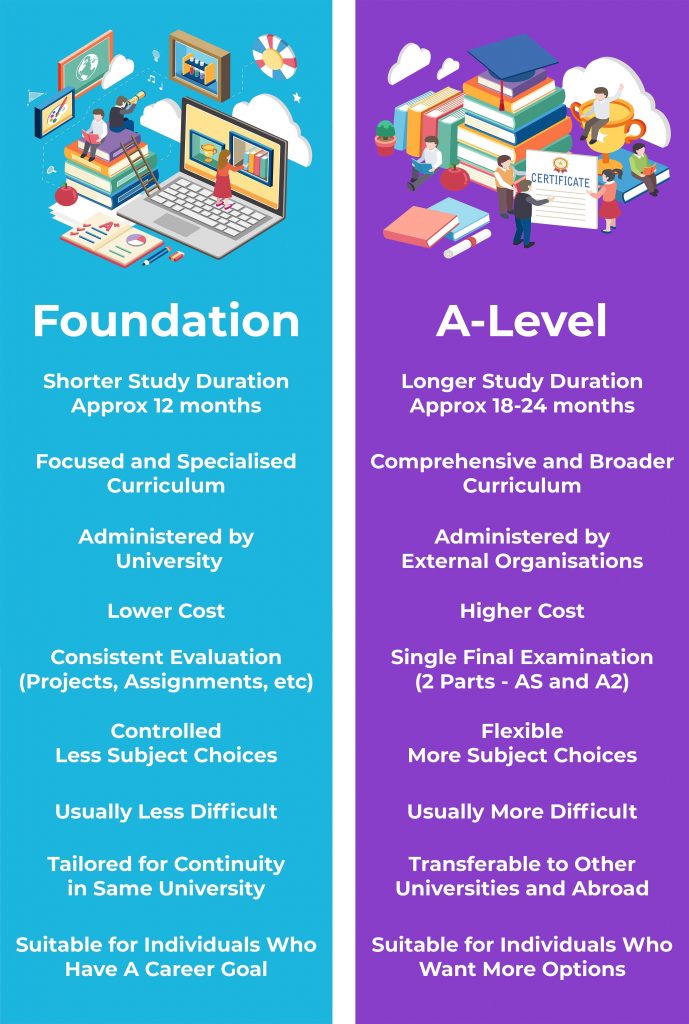
Studying in the UK: The Difference Between A-Levels and Foundation Year
When planning to study in the UK, international students often come across two main pathways to enter a bachelor’s degree program: A-Levels and the Foundation Year. Both are designed to prepare students for university, but they differ in duration, structure, and purpose.
🔹 What Are A-Levels?
A-Levels (Advanced Level qualifications) are the traditional UK qualifications taken by students aged 16–18. They typically last two years and involve studying 3 to 4 subjects in depth.
Key Points:
Recognized by all UK universities
Suitable for students who want to apply to top universities like Oxford or Cambridge
Offers more academic depth and flexibility in choosing future majors
Assessed through final exams
🔹 What Is a Foundation Year?
A Foundation Year is a one-year preparatory program designed for international students who:
Do not meet the entry requirements for direct undergraduate study
Have completed 12 years of schooling (not 13 as in the UK)
Want to improve their English and academic skills before starting a degree
Key Points:
Lasts 9–12 months
Often linked to a specific university and course
Includes English, academic skills, and subject-specific modules
Quicker route than A-Levels